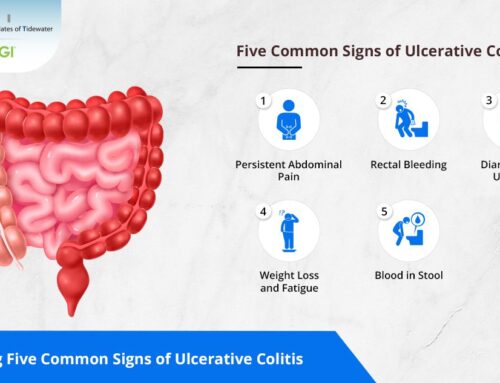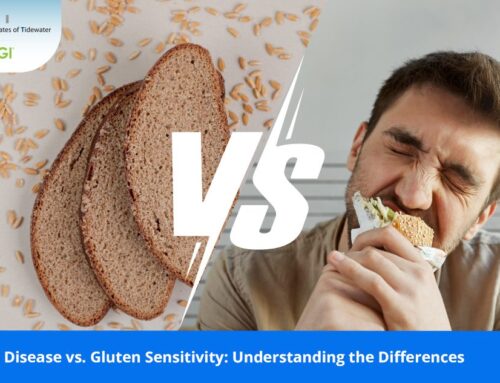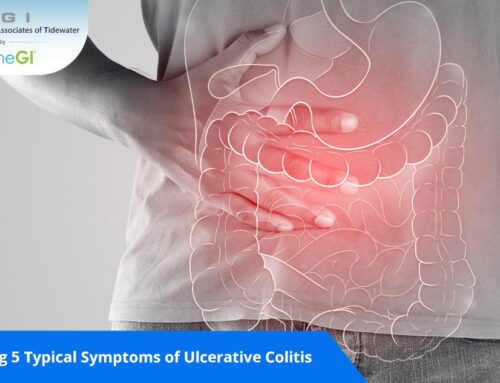If you or someone you know is suffering from ulcerative colitis, it is important to learn as much as possible about the disease. Ulcerative colitis is a form of inflammatory bowel disease which is a chronic disease that causes sores and irritation in the large intestine. The good news is that there are treatments available that can help lessen the symptoms of ulcerative colitis. In this blog post, we will discuss what ulcerative colitis is, the symptoms, and the treatment options available.
If you have ulcerative colitis, it is important to see a board-certified gastroenterologist. A gastroenterologist is a doctor who specializes in the diagnosis and treatment of disorders of the gastrointestinal tract. The gastroenterologists at Gastroenterology Associates of Tidewater are available to consult on your symptoms and treatment options.
Ulcerative colitis can have a spectrum of symptoms ranging from frequent fevers, bloody diarrhea, nausea, anemia and severe abdominal cramps. Ulcerative colitis can also cause issues such as arthritis, eye inflammation, liver disease and osteoporosis. Other symptoms may include joint pain and mouth sores.
People who are more likely to get ulcerative colitis include:
- Typically those age 15 to 30 or older than 60. However, anyone, including young children, can get ulcerative colitis.
- Those who are of Jewish descent
- Those who have a close family member with the condition
Ulcerative colitis is not caused by stress or food, but it may exacerbate symptoms.
To diagnose ulcerative colitis, a gastroenterologist may order various tests which may include blood tests, stool samples, x-rays, flexible sigmoidoscopy and colonoscopy.
This is a serious disease and if left untreated, it can be life-threatening. Although there is no cure for ulcerative colitis, there are treatments to help alleviate the symptoms. The goal of successful treatment is to calm the inflammation and induce remission. Treatment may include a combination of changes in diet and medication.
Some foods trigger symptoms. Eating a more bland diet as opposed to eating spicy foods may be a better option as well as a balanced diet. A healthy diet should provide adequate vitamins and minerals, as long as it is rich in fiber, protein, fruits, and vegetables.
The most commonly ulcerative colitis treatment is medication. Medications used to treat ulcerative colitis include:
- anti-inflammatory drugs
- immune system suppressors
- antibiotics
For more severe cases, surgery may be necessary. Surgery entails removing the colon or removing the colon and rectum.
If you have any questions or concerns, be sure to speak with your gastroenterologist. Ulcerative colitis can be a difficult disease to manage but with the help of a medical professional, you can live a normal and healthy life. ulcerative colitis is not curable but it is treatable.
If you have questions or concerns about your digestive health, contact Gastroenterology Associates of Tidewater to make an appointment by calling (757) 547-0798. The offices are located in Chesapeake and Virginia Beach.






